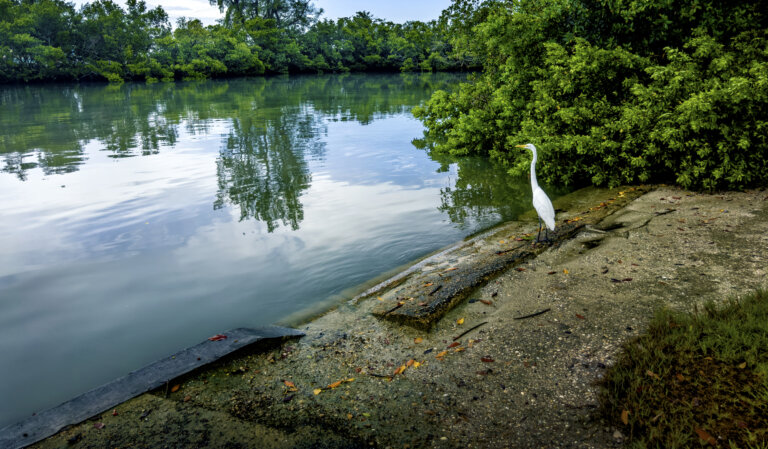Real estate development in Florida comes with a set of unique challenges, especially when it comes to environmental regulations. These regulations are designed to protect Florida’s natural resources, such as wetlands, water quality, and wildlife habitats, while also ensuring that development projects adhere to the state’s sustainability goals. Whether you’re looking to develop:
- residential,
- commercial,
- or mixed-use properties in Palm Harbor,
understanding these regulations is crucial to avoid delays, costly fines, and legal complications.
The Law Offices of Jeffrey A. Herzog can help real estate developers navigate the complexities of environmental laws and ensure that your projects comply with all local and state requirements. By working with experienced legal counsel, you can avoid costly mistakes and protect your investment in the development process.
Key Environmental Regulations Affecting Real Estate Development in Florida
Florida’s environmental regulations cover a wide range of issues that can affect real estate development projects, including wetlands preservation, water management, air quality, and endangered species protection. Understanding these regulations and how they apply to your property is essential for smooth project approval and construction.
Wetlands and Coastal Areas
One of the most significant environmental factors in Florida is the protection of wetlands. Wetlands are vital ecosystems that provide flood control, water filtration, and habitat for wildlife. Florida’s state laws and federal regulations, such as those enforced by the U.S. Army Corps of Engineers, require developers to obtain permits before altering or developing land within or near wetlands.
In Palm Harbor, the proximity to both the Gulf of Mexico and several coastal estuaries means that many real estate development projects are subject to heightened scrutiny when it comes to wetland and coastal area preservation. Developers must conduct environmental assessments to determine the impact their projects will have on these delicate ecosystems.
Stormwater Management and Floodplain Protection
Florida is no stranger to heavy rainstorms and flooding, making stormwater management a critical component of any real estate development project. The Florida Department of Environmental Protection (FDEP) and the local water management districts, such as the Southwest Florida Water Management District (SWFWMD), regulate stormwater systems to prevent runoff and protect water quality.
In Palm Harbor, developers must ensure that their projects do not exacerbate flooding or affect water quality by providing adequate stormwater retention systems. Proper planning and engineering are essential to meet the state’s stringent floodplain management regulations and avoid potential penalties.
Air Quality and Environmental Impact Assessments
Florida requires specific real estate projects, particularly larger developments, to undergo Environmental Impact Assessments (EIAs). These assessments evaluate the potential environmental effects of a proposed development on:
- air quality,
- water resources,
- wildlife,
- and other natural resources.
An EIA may be required for projects that could have significant environmental impacts, such as large residential complexes, commercial buildings, or industrial parks. The findings of the EIA are submitted to the state and local authorities for review, and any mitigation measures or changes to the project will need to be approved before moving forward.
Endangered Species and Habitat Protection
Florida is home to a variety of endangered species, including the Florida panther, manatee, and various species of sea turtles. Developers must ensure that their projects do not harm these species or their habitats. In some cases, developers may be required to modify their plans or even set aside land for wildlife corridors or protected areas.
Palm Harbor’s proximity to both coastal and inland habitats makes it crucial for developers to conduct thorough studies to ensure that their projects do not disturb endangered species or their natural environment. Legal guidance is essential to ensure compliance with state and federal wildlife protection laws.
The Permitting Process for Real Estate Development
Navigating the permitting process for real estate development can be one of the most challenging aspects of compliance with environmental regulations. Developers in Palm Harbor need to work with local government agencies, such as the Palm Harbor Community Services Agency, as well as state and federal entities, to secure the necessary permits and approvals.
The permitting process typically involves multiple steps:
- Preliminary Environmental Review: A review to determine whether the proposed project might impact the environment.
- Environmental Impact Assessment: A more in-depth analysis that examines the potential effects on the environment and suggests ways to mitigate harm.
- Permit Applications: Developers must submit detailed plans to obtain permits for construction, water use, stormwater management, and more.
Each of these steps requires thorough documentation and professional experience to ensure that your project meets all requirements.
Why You Need Legal Guidance in Real Estate Development
Understanding and complying with Florida’s environmental regulations can be a complex and time-consuming process. Even a tiny mistake in the permitting or environmental review stages can result in costly delays, legal battles, and fines. By working with experienced attorneys, developers can mitigate risks and ensure that all environmental regulations are properly addressed.
The Law Offices of Jeffrey A. Herzog are well-versed in Florida’s environmental laws and regulations related to real estate development. Our legal team can assist you in navigating the complexities of environmental reviews, obtaining the necessary permits, and ensuring compliance with local, state, and federal laws. Whether you are working on a small residential development or a large commercial project, we are here to help you every step of the way.
Contact Us Today
Real estate development in Palm Harbor presents exciting opportunities, but it also comes with the responsibility of adhering to strict environmental regulations. By understanding the local and state laws that protect Florida’s natural resources, developers can ensure that their projects proceed smoothly while minimizing the risk of legal issues.
For professional guidance on Florida’s environmental regulations in real estate development, contact The Law Offices of Jeffrey A. Herzog. Our legal team is here to help you navigate the complexities of real estate development and protect your investment every step of the way.

